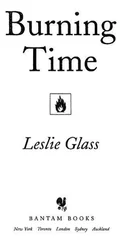“Well, I’m Judy,” Judy said.
“Oh, not you,” said Mama impatiently.
Mama wadded up the note and threw it at me. “As soon as I finish my breakfast, Calley, I am calling the FBI.”
Judy was backing out of the room but Mama stopped her.
“You brought me three brioche yesterday, and this morning there are only two,” Mama said.
“Janice is having trouble with the oven heat,” Judy said. “It’s uneven. She had five dozen brioche too tough to leave the kitchen.”
“Tell Janice I am not interested in her difficulties with the oven. Tell Janice I am worried to death about my kidnapped husband and I need three brioche in the morning, and not just two, to keep up my strength.”
When Judy left, I said to Mama, “Maybe they did it.”
Mama was buttering one of her brioche. “Maybe who did what?”
“That Judy, and the Janice that bakes your brioche. Maybe they’re the ones that took Daddy.”
Mama snapped at me. “Calley, I am living in hell. I do not need this idiocy of yours.”
A moment later she asked, “Do you suppose that Judy the nitwit and this Janice the cook wrote these notes as a joke?”
“But where’s Daddy?”
Her face clouded. She lit a cigarette while she brooded and then she went to put on her makeup.
As soon as Mamadee and Ford appeared for breakfast, she showed them the note. Then Lawyer Weems had to see it. He observed, as we all had, that it was very like the first one, and advised that the FBI be informed. Eventually he billed Mama for that advice, and got what he deserved: no payment at all.
An FBI agent came, took the note into custody, and asked Mama, “What instructions?”
“I asked the very same question. I asked the girl who brought me my breakfast this morning. I asked my seven-year-old child. They could not tell me. I have no idea what instructions I am supposed to follow.”
“Then we wait for the instructions.”
“I hope they come soon,” Mama said. “Because I’d like to see the FBI pay for what this hotel is costing.”
No instructions came that night or the next morning. Judy came though, bringing only one brioche.
Mama was almost too furious to speak. I thought for a minute that she might put her cigarette out between Judy’s eyes.
Judy saw Mama was mad and said quickly, “Something happened to the oven. Janice said it about nearly exploded in her face when she tried to light the pilot.”
“There is no excuse for bringing me teensy, tough brioche and undrinkable coffee, not at this hotel’s prices!” Mama snarled.
But after Judy left, Mama called the FBI and said, “There is a Judy Somebody-or-other who is a chambermaid in this hotel, and there is a Janice Something-else who works in the kitchen, and I don’t know why I have to do your business for you, but if I were J. Edgar Hoover, I would ask them what they would do with a million dollars if it fell down on them out of the sky.”
When she heard of all this, Mamadee was first incredulous and then appalled. She had not known, as Mama and I had, that the hotel chambermaid and the pastry cook bore the same first names as the signers of the notes. Nor had Ford. He was shocked, and even angrier than Mamadee that no one had made the connection.
“I tried to tell Mama,” I tried to tell him.
He paid no more attention to me than she had.
“How could you not realize?” Mamadee hissed at Mama, while Lawyer Weems frowned his disapproval.
“Maybe because I’ve had everybody in the world telling me what to do for the last seven days!” Mama shouted. “That girl is a moron, I caint see how she could manage to kidnap an ashtray!”
By this time, Judy DeLucca and Janice Hicks had broken all Daddy’s bones, beating his corpse for more than forty minutes with the bottom of a Black Maria cast-iron frying pan stolen from the hotel kitchen and wielded in turn by each. By pressing hard, and cutting off his head, both feet, then his legs, and his hands and arms, with a cleaver also stolen from the hotel kitchen, they succeeded in squeezing most of Daddy into the footlocker. When she was arrested, Janice had Daddy’s left foot in her imitation alligator-skin purse. His head, left forearm and right foot would remain missing.
Judy and Janice confessed immediately to the kidnapping, torture, murder and dismemberment of Joe Cane Dakin.
Judy told the police that someone had broken into the apartment and stolen the missing parts. Janice’s baby brother, Jerome, wrote a letter to the Times-Picayune complaining that the police had done nothing at all to investigate the robbery next door.
Not surprisingly, the details were kept from me at the time. I am not sure that even Mama knew them all. I have patched the story together from a crazy quilt of the contemporary newspapers and periodicals, from court records and the reports of private investigators. In the yellowed old newsprint, the pictures of Daddy, of Mama being taken into the police station for questioning, and of Judy DeLucca and Janice Hicks at the trial, they all look as if they are playing parts in a black-and-white James M. Cain film.
In 1958, the world was still largely black-and-white, and not just racially. People still read newspapers and magazines and listened to the radio. Only a minority of people owned a television set, and those sets were mostly black-and-white. Since the triumph of living color, it is the past that is rendered in black-and-white, and olden times in sepia. Even if still living, a person photographed in black-and-white is now dead to the eye, as if film and print mirrored the ghost to be.
I hardly know Mama. She is so young, too young to have been my mama, or Ford’s. In these photographs, she is a tabloid starlet. She brings to mind those early photographs of Marilyn, hardly out of her teens.
Mamadee looks at Mama and sees herself thirty years younger. Hair in glassy waves, a fur tippet flashing a diamante fur clip around her shoulders, Mamadee is the ghost of Mama Future, if Mama lives so long, and allowing for changes in fashion. Mamadee’s upper lip is furrowed with bitterness, her spine stiff with resentment. There is a glint of something like panic in Mamadee’s eyes, as if she feels a heel wobbling under her. Perhaps it is only an accident of the photograph.
Lawyer Weems, with his slicked-back hair and in his three-piece suit, seemingly made for a larger man, could be some congressman interrogating suspected Communists before the House Un-American Activities Committee.
Most boys on the cusp of puberty are anything but beautiful. Ford was. I was too young to see it. And now I see the acute awareness of a feral creature, ready to bolt at the snap of a twig. The photographs cannot quite catch him; some part of him seems always surging into motion. The film is too slow, the flash too weak, the aperture too small to fix him, physically, as he was escaping the Ford of then, evolving into the new model Ford.
I look into Daddy’s faded eyes in the formal headshots taken for business purposes, the snapshots from the convention or retrieved from Alabama newspaper archives. I see now that they are like my own. They are the eyes of a ghost, interrupted and restless. His dead lips tell me nothing.
What the articles, the accounts, the chapters in the books, and the testimony at the trial did not reveal was the motive for the kidnapping.
The million dollars would have been a motive, it’s true, but only if Janice and Judy had attempted to collect it. They knew Mama had it. Everybody in the hotel, and everybody in New Orleans, knew Mama had the money, in small bills, in a footlocker brought by Lawyer Weems on the Dixie Hummingbird from Montgomery.
It is strange to me that no one then pointed out the coincidence that the footlocker that held the ransom money was identical to the footlocker into which Janice and Judy had worked so hard, so bloodily, so ineffectively, to cram Daddy’s remains. Same size, same color, same manufacturer. The war was only over a few years, and given the number of troops under arms, I suppose there must have been hundreds of thousands of the things floating around the country.
Читать дальше












